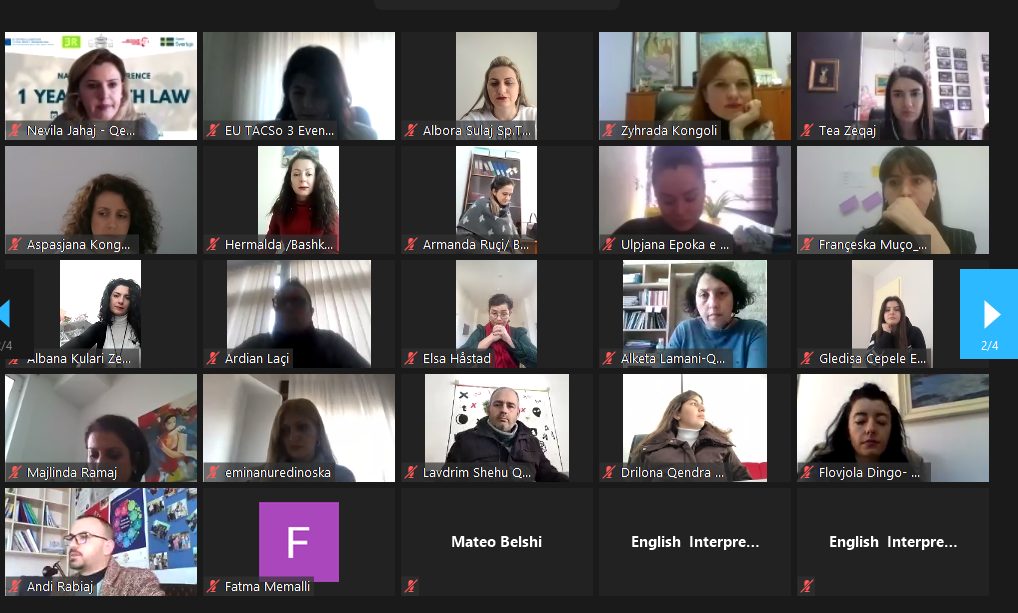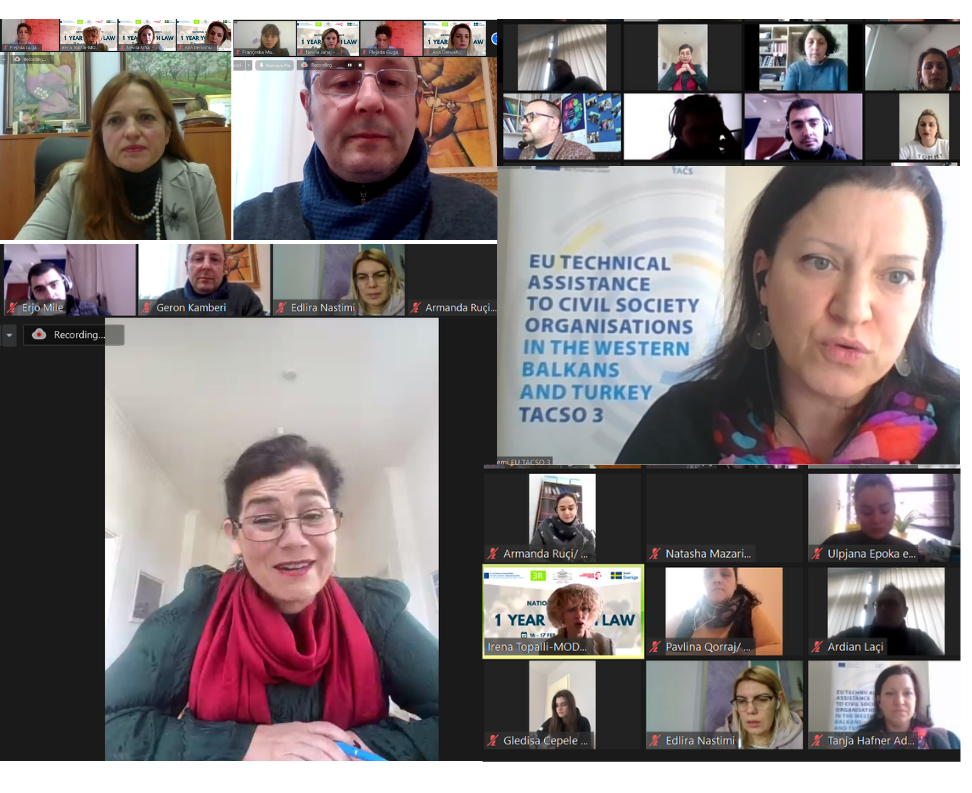
“1 Year Youth Law” in Albania and its implementation was at the focus of the on-line two-day National Conference held on 16 – 17 February 2021. The Conference was organised by the Epoka e Re Center in cooperation with the Ministry of Education, Sports and Youth, and supported by EU TACSO 3 and the Olof Palme International Center.
The Conference was organized one year after the Youth Law was enacted. The idea of having this Conference was to facilitate a process that will strengthen cooperation between state institutions and CSOs with youth. This Conference was a continuation of all efforts that a network of organisations has done in the past related to the adoption and implementation of Youth Law.
The Conference brought together 100 participants among which youth organizations, relevant ministries, municipality representatives, and other stakeholders from all over Albania. They exchanged views, shared experiences on different issues, and detected common concerns. Also, they developed realistic recommendations to improve the law and the status and role of young people in society.
Aspasiana Congo, the Deputy Minister for Education, Sports and Youth, emphasized the importance of the Law on Youth that was adopted in 2019. She informed the participants about the youth centres that are being established in almost every municipality in Albania. Currently, the Ministry is preparing bylaws to strengthen young people’s cooperation, mobility, and employment capacity.
During the opening session of the Conference, the Executive Director of the Epoka e Re, Nevila Jahaj informed that the Youth Law is the most important political and legal document for youth organizations and youth in general, for two main reasons: firstly, because it lays the foundations for the institutionalization of youth participation in decision-making at the central and local level, and secondly, it promotes direct funding and better financial sustainability of youth organizations and revitalization of youth activities.

Furthermore, during the first day, open debates regarding the achievements and weaknesses of implementing the law were the main focus of the discussion. The participants were divided into four groups/panels that discussed: a) Youth structures at the local level; b) Youth Budget for CSO-s; c) Central structure-Youth; and d) National Agency and Youth National Council. During the second day, information and conclusions from each panel group were presented, and an overall discussion about the recommendations was held.
Main findings and recommendations from the conference are published in a document with specific proposals for improving the Youth Law, carrying priorities and needs of youth. Proposed recommendations will be shared with the Ministry of Education, which should consider them for further amending of Youth Law.
